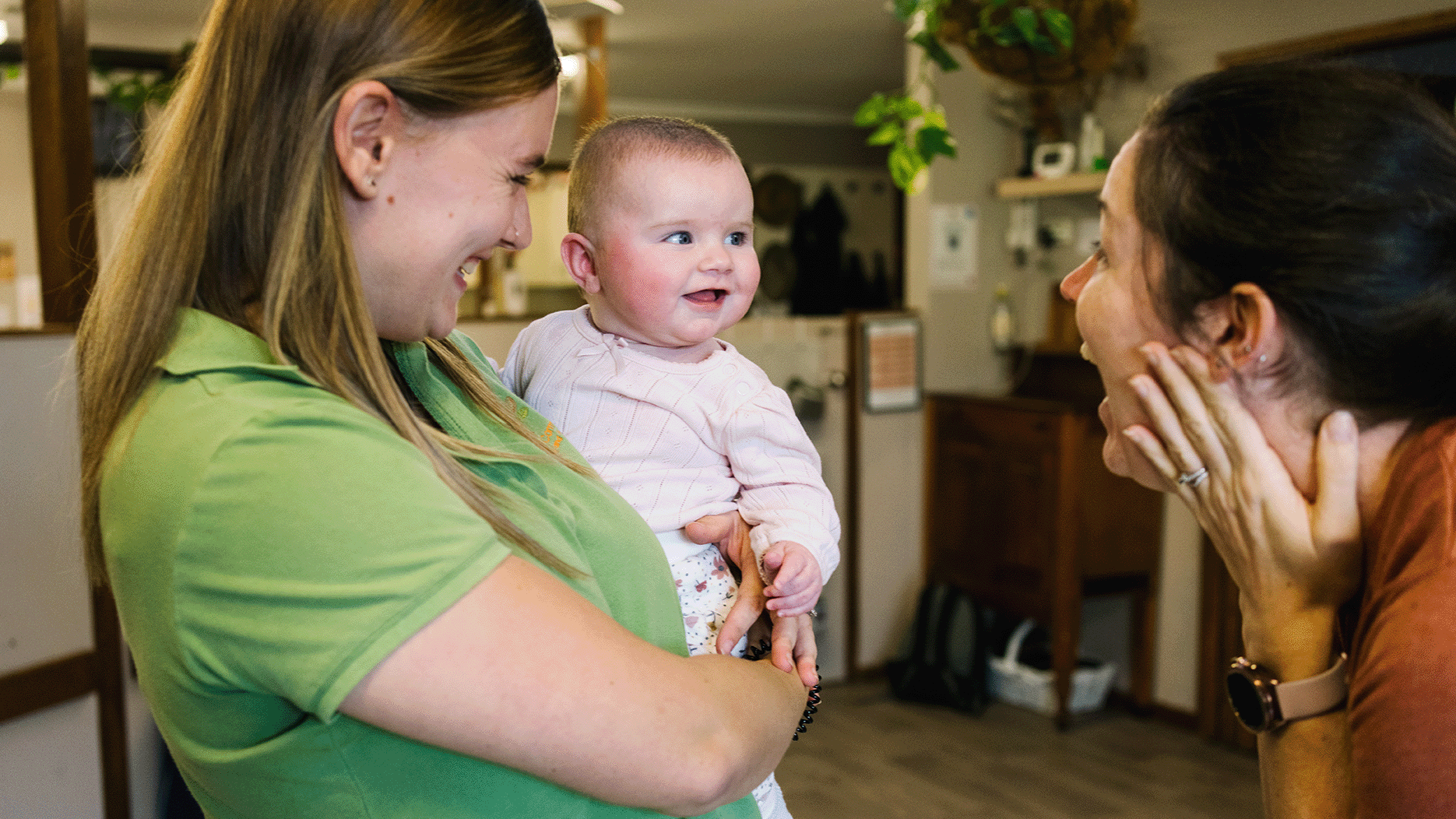
Starting at a service can be an emotional experience for you and your child. Children may experience difficulty settling into a new environment, particularly if they find it hard to separate from family or familiar caregivers.
These suggestions may help you support your child during the settling in period. They may cry, be grumpy or throw tantrums until they get used to the new environment.
Orientation
Plan an orientation visit to the service
- An orientation visit before your child starts will give them a chance to explore their new environment.
- They can begin to develop a relationship with the educators and meet other children at the service with the security that you are close by. Familiarising your child with their alternate carers and care setting will be a huge help to them.
- Discuss your child’s interests, routines and rituals with the educators.
- The service may also be able to provide you with a family handbook at this time. This should include information about the service’s operations and key policies and procedures which may help you to plan to settle your child into care.
Prepare them for spending time without you
- Leave your child with their grandparents or your friends for a few hours every day so they get used to your absence.
- Talk about child care with your child and let them know that you are happy and confident that they will have a good time and will be cared for.
- If possible, start with shorter or fewer days then gradually increase their time spent at the care centre. Once they develop a settling routine, they should be more comfortable.
- Don’t let your emotions or anxieties affect your child. Try and hold back your tears when you drop them off.
- Say ‘goodbye’ confidently and reassure them when you leave that you (or someone else) will be back later to collect them.
- Give your child sufficient time to say their goodbyes in the morning. Arrive at the service early so you have time to prepare your child for a good day.
Comfort your child
- Ask your child if they would like to take their favourite toy or colour book to the service
- Find a preferred educator to leave your child with at drop off time
- Spend some time settling your child into a favourite activity before you leave
- Let your child's educators know what comforts your child at home and discuss how you manage activities or times of the day that they find unsettling
- Show your child empathy, talk to them and reassure them that they’ll be okay.
- Where possible, organise play dates outside of the service to help your child to feel more comfortable he other children.
Encourage your child
- When you pick up your child from their service, tell them they did great that day
- Encourage your child to help you to pack their bag with essentials they will need for the day
- Take the time to have a nice conversation at the breakfast table and let them know what time you’ll be picking them up
- Talk with your child and listen to any concerns or anxieties.
For your own peace of mind, if your child was upset at drop off time you may find it reassuring to call their educators later on to hear about how your child settled. Children who become very upset during drop-off time often settle very quickly and happily once the actual separation is over. Your child's educator may also have some tips to share.
How can your child's educators help them settle?
Your child's educators can help you and your child openly and sensitively by:
- sharing information about what to expect and some settling tips
- keeping you informed about your child’s settling and seeking ongoing updates from you about your child’s needs and interests
- inviting you to call or visit the service
- letting you know about anything that may be happening at the service that may affect your child’s settling, such as the absence of one of their usual educators
- reviewing the settling process for your child with you to identify how this is going.
Tips for reconnecting with your child at the end of the day
It’s not only a new experience for your child, it’s also important for you to know how they feel about going to their early childhood education and care service. This will help you connect and build a strong relationship with your child.
After you pick them up from their centre, give them your undivided attention and create a meaningful conversation:
- ask them about their favourite activities
- ask them about their friends and the games they played
- if their service provides food, ask your child how it was and who they ate it with
- ask them about their educators and what they like about them
- ask them if their educators read them any stories, which one was it, and what they liked about it
- mention some items that your child would see or play with at the service, as this helps them recall situations, such what they and their friends made with the blocks
- ask them if they learned anything new